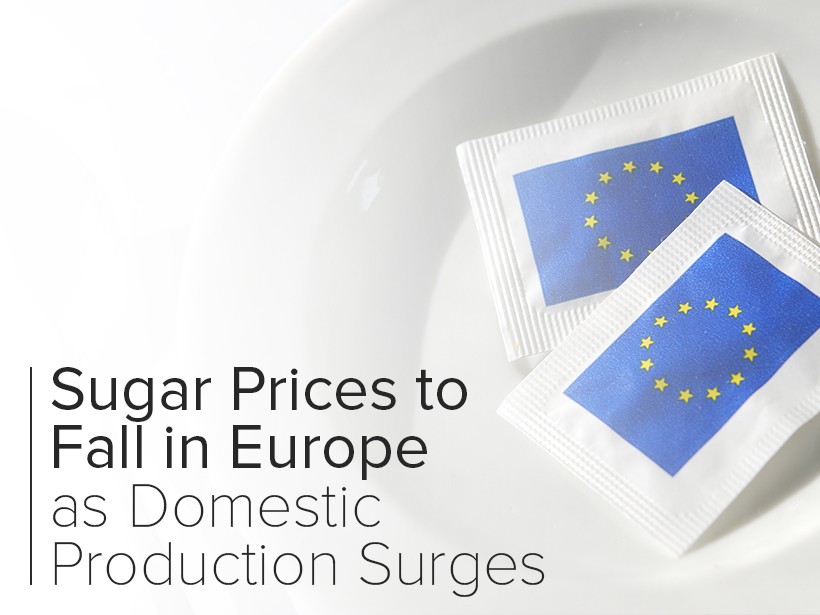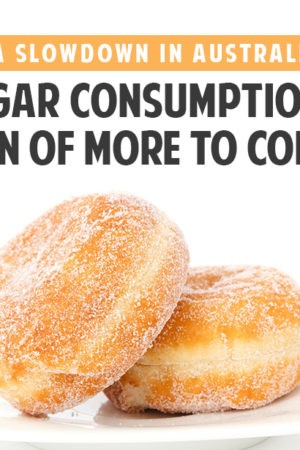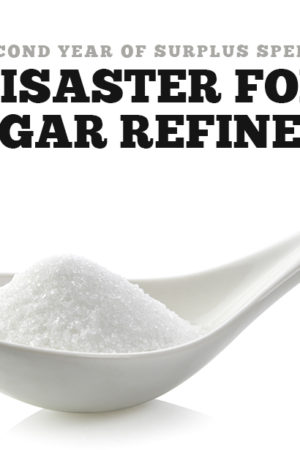In a recent article, I discussed the European Union’s deregulation of the sugar market at the end of last year, when it abolished decades-old price floors, tariffs, and quotas. The move allowed larger sugar producers in Europe to step up production and squeeze out their smaller competitors, who dropped out of the market in anticipation of a steady decline in prices. Health experts and officials were frightened by the decision, fearing that it would lead also to a fall in the price of sugary products for consumers and reverse their efforts to curb public consumption. In light of recent estimates, these fears seem to have been well-placed.
Consumer Prices Plunging in Europe
Analysts predict that European imports should be cut nearly in half, from 3 to 3.5 million tonnes to 1.8 million. Exports, on the other hand, should double from 1.3 million tonnes to 2.5 million annually. As the biggest European producers consolidate the domestic market and begin to compete globally, the price in Europe is expected to drop quickly and dramatically. This means that not only will the price of unrefined sugar continue to go down, but that everyday consumers may already begin to see a change in the cost of their products.1
Ramifications Outside of the E.U.
European countries will not be the only ones affected by the price change. Kenya, for example, which, due to low domestic production relies for most of its supply on exports from Europe and elsewhere, is one of the places where similar results are expected. Swaziland, on the other hand, Africa’s largest sugar exporter, is expected to receive a significant blow to its national economy, where before it had been held in place by the lack of European competition.2 Uganda, too, is set for a drop in prices, as well as a similar blow to its yearly exports.3
Europe’s advance on the global market is adding more supply to an already massive sugar surplus. British Sugar alone produced a record 8.9 million tonnes of sugar in the wake of the deregulation.4 While one does not normally lament lower prices, European countries have been uniquely successful in lowering sugar consumption thanks to a series of taxes and other efforts to get food industry members to lower the sugar content in their products. A sustained drop in the price of sugar and the cost of such products could turn the tide in the fight against obesity and obesity-related diseases.
NUTRITIONAL DISCLAIMER
The content on this website should not be taken as medical advice and you should ALWAYS consult with your doctor before starting any diet or exercise program. We provide nutritional data for our recipes as a courtesy to our readers. We use Total Keto Diet app software to calculate the nutrition and we remove fiber and sugar alcohols, like erythritol, from the total carbohydrate count to get to the net carb count, as they do not affect your blood glucose levels. You should independently calculate nutritional information on your own and not rely on our data. The website or content herein is not intended to cure, prevent, diagnose or treat any disease. This website shall not be liable for adverse reactions or any other outcome resulting from the use of recipes or recommendations on the Website or actions you take as a result. Any action you take is strictly at your own risk.
- California Pushes for Cigarette-Like Warning Labels on Soda - July 1, 2019
- Is a Slowdown in Australia's Sugar Consumption a Sign of More to Come? - June 24, 2019
- Groundbreaking Study Says the Sugar Rush Doesn't Exist - June 12, 2019































